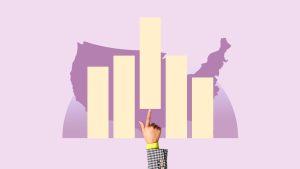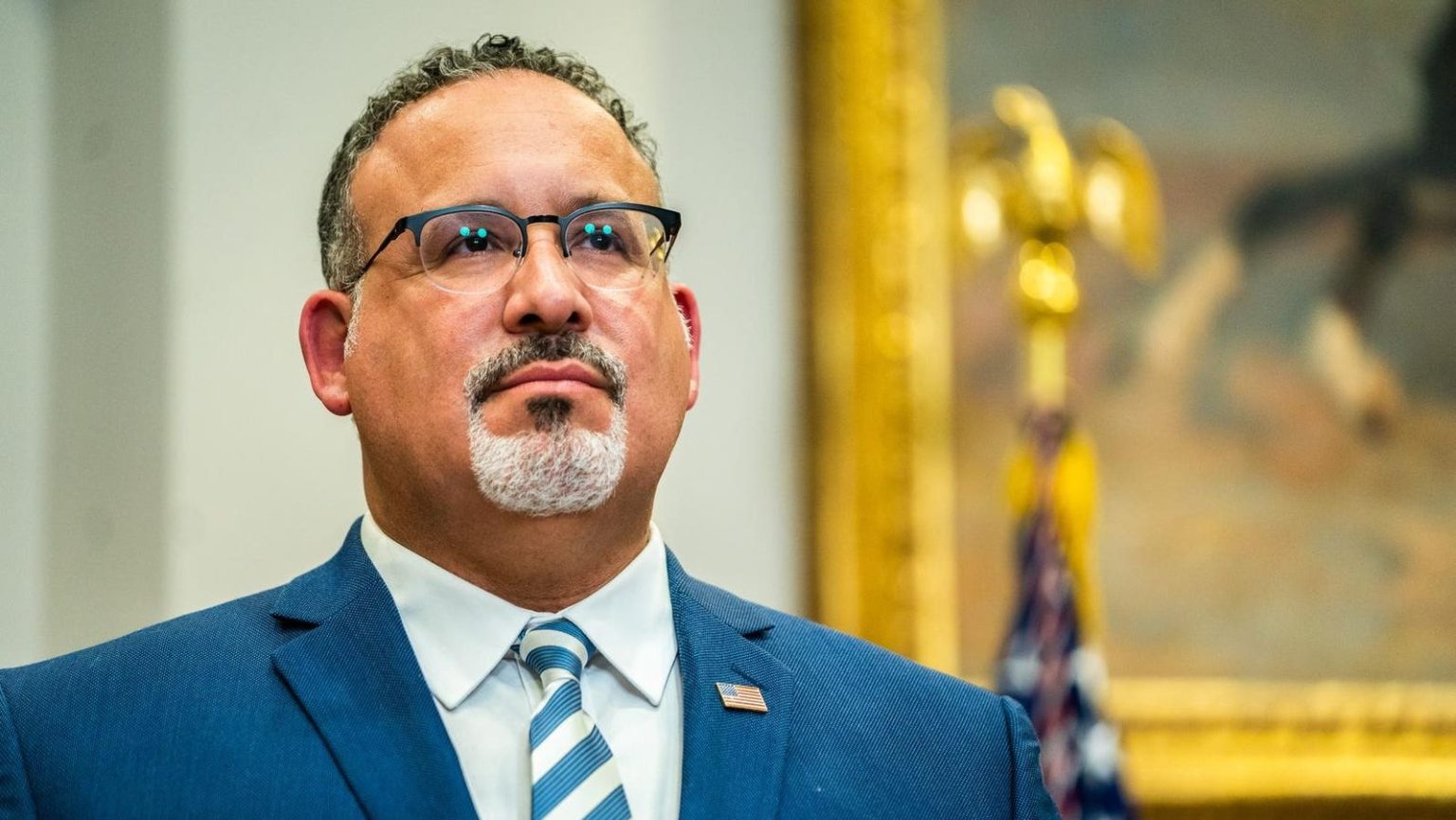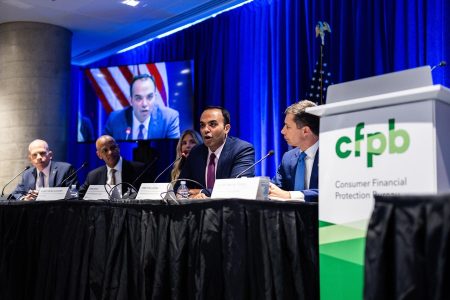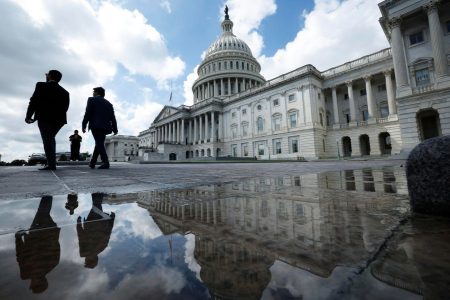The federal student loan system has been been thrust into upheaval yet again after a federal appeals court halted a key Biden administration student loan forgiveness and repayment program.
On Thursday, the 8th Circuit Court of Appeals suspended implementation of the Saving on a Valuable Education, or SAVE, plan. The Biden administration created SAVE as a new income-driven repayment option for borrowers. The program’s benefits include lower payments, a generous income exemption that allows borrowers with lower income to pay $0 per month, an interest subsidy that prevents runaway balance growth, and eventual student loan forgiveness after 10 to 25 years in repayment, depending on the type of loans.
Biden administration officials and advocates for borrowers warned that Thursday’s court order would unleash chaos for the more than eight million borrowers who have already enrolled in SAVE or have submitted an application. Meanwhile, Republican lawmakers cheered the outcome and decried the SAVE plan as an unfair and illegal bailout for student loan borrowers.
Key Details On Court Order Halting Student Loan Forgiveness And Reduced Payments
This week’s order from the 8th Circuit is just the latest development involving legal challenges to the SAVE plan. Two groups of Republican-led states filed dueling lawsuits last spring in Kansas and Missouri, arguing that SAVE is far more generous than what Congress had authorized when it passed legislation establishing income-driven repayment in 1993. The Biden administration countered that the Higher Education Act provides broad authority to the Secretary of Education to establish the parameters of IDR plans — authority that multiple administrations have exercised over the course of the last 30 years, without incident.
Federal district court judges in Kansas and Missouri issued partial preliminary injunctions last month, blocking parts of the SAVE plan but allowing other elements of the program to proceed. The Kansas court blocked reduced payments under SAVE for undergraduate student loans that were set to go into effect in July, although this order was subsequently stayed following an appeal to the 10th Circuit Court of Appeals. The Missouri court, meanwhile, blocked student loan forgiveness under SAVE, but allowed borrowers to continue with lower monthly payments.
The state of Missouri appealed the partial injunction to the 8th Circuit Court of Appeals. On Thursday, that court issued a one-line, unsigned order temporarily blocking the entire SAVE program, pending the Court’s consideration of a longer-term preliminary injunction. This initial temporary order goes much further than either the Kansas or Missouri injunctions issued in June; instead of halting just parts of the SAVE Plan, it blocks the whole program, including all student loan forgiveness and lower payments.
Officials And Advocates Warn Of Chaos For Borrowers Pursuing Student Loan Forgiveness and IDR
Biden administration officials warned of dire impacts for borrowers following the court order.
“Today’s ruling from the 8th Circuit blocking President Biden’s SAVE plan could have devastating consequences for millions of student loan borrowers crushed by unaffordable monthly payments if it remains in effect,” said U.S. Secretary of Education Miguel Cardona in a statement on Thursday. “It’s shameful that politically motivated lawsuits waged by Republican elected officials are once again standing in the way of lower payments for millions of borrowers. It wasn’t so long ago that a million borrowers defaulted on their student loans every single year, mainly because they couldn’t afford the payments. The SAVE plan is a bold and urgently needed effort to fix what’s broken in our student loan system.”
Advocates for borrowers echoed these concerns.
“Right-wing politicians are using the courts to wreak havoc on the student loan system and put the economic stability of tens of millions of borrowers and their families at risk,” said Persis Yu, Deputy Executive Director of the Student Borrower Protection Center on Thursday. “Make no mistake: these lawsuits are shameful political gamesmanship designed to hurt President Biden at all costs, and borrowers are merely collateral damage. Unfortunately, today, the special interests have prevailed, imperiling the financial security of millions and throwing the student loan system into an untenable chaos.”
“This decision threatens the entire federal student loan system and will cause complete chaos and confusion, impacting millions of student loan borrowers and families across the country,” said Eileen Connor, President and Executive Director of the Project on Predatory Student Lending, in a statement on Thursday. “The SAVE plan was created to allow low-income borrowers a fair path to repay their federal student loans and instead they will now have a greater risk of default and serious financial consequences.”
Republicans Cheer Court Order, Arguing That Biden’s Student Loan Forgiveness Efforts Are Illegal
Meanwhile, Republican lawmakers celebrated the 8th Circuit’s order, arguing that blocking the SAVE plan is necessary to stop an illegal and unfair student loan forgiveness plan. Lawmakers blamed the Biden administration for the latest problems facing borrowers — even though the new disruptions were the direct result of legal challenges brought by Republican-led states.
“HUGE win for every American who still believes in paying their own way,” said Missouri Attorney General Andrew Bailey in a statement on X on Thursday. Bailey’s office led the efforts to block SAVE at the 8th Circuit, arguing that his state would suffer financial harm as a result of borrowers enrolling in the plan and receiving student loan forgiveness.
“The chaos and destruction this administration is inflicting on the nation’s student loan system is unprecedented,” said Education and the Workforce Committee Chairwoman Virginia Foxx (R-NC) in a statement following the 8th Circuit’s order. “Turning a blind eye to fiscal responsibility and the intent of Congress to keep a campaign promise—a promise you had no authority to make—will hurt American education and U.S. economic competitiveness.”
“Today’s decision is another rebuke to President Biden’s illegal student loan schemes,” echoed Senator Bill Cassidy (R-LA). “He isn’t ‘forgiving’ debt. He is taking the debt from those who willingly took it out to go to college and transferring it onto taxpayers who decided not to go to college or already paid off their loans. This is an abuse of power before an election in an attempt to buy votes at the expense of American taxpayers.”
The Higher Education Act of 1993 provided broad authority to the Education Department to establish income-driven repayment plans. The statutory IDR provision sets upper limits for the repayment formula and length of the repayment term, but delegates authority to the Secretary of Education to draft rules establishing more specific guidelines and parameters. The department exercised this authority in 1994 to create Income-Contingent Repayment, in 2012 to create Pay As You Earn, in 2015 to create Revised Pay As You Earn, and again last year to establish SAVE. Another IDR plan — Income-Based Repayment — was separately authorized by Congress through legislation passed in 2007.
Borrowers On SAVE Plan To Be Placed In Forbearance As Battle Over Student Loan Forgiveness Continues
The Education Department indicated that as a result of the 8th Circuit’s order, borrowers currently enrolled in SAVE — which number more than eight million — will be placed into an interest-free administrative forbearance. This will suspend monthly payments as the litigation continues.
“Borrowers enrolled in the SAVE Plan will be placed in an interest-free forbearance while our Administration continues to vigorously defend the SAVE Plan in court,” said Cardona on Thursday. While borrowers will not accrue interest during the forbearance, the period will not count toward student loan forgiveness under IDR or Public Service Loan Forgiveness — which may be a significant problem for those on track for these programs.
It is unclear how long the forbearance will last. But the 8th Circuit’s order will remain in effect at least until the court rules on a request for a preliminary injunction. The court could then extend, reverse, or modify the existing order blocking the SAVE plan. Any subsequent order is likely to get appealed to the Supreme Court, however. So this legal battle may continue for quite some time.
Read the full article here
















